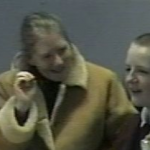 The Focus of the Study
The Focus of the Study
The focus of the study was to measure the impact of the intervention – Support Groups – upon pupils and to determine both the strengths and weaknesses within the approach and the variables which made a difference for pupil outcomes. The Research Questions which drove the study were [in simplified form]:
To what extent, if any, have pupils developed further intrapersonal and interpersonal intelligence [understanding of self and others]?
To what extent, if any, have pupils developed further:
- The capacity to regulate their behaviour with good judgement in a range of contexts?
- The capacity to form and maintain interpersonal relationships and for empathy?
- Self-esteem and confidence?
- More positive dispositions towards school and towards learning?
What are the strengths and weaknesses of the approach and what are the variables which impact upon pupil progress?
What can be learned from the study to inform Scottish educational policy and practice as it pertains to the inclusion of pupils experiencing SEBD?
The Study Methodology
The study drew upon the accounts of the pupils themselves, their parents, their Support Group Leaders, their Pastoral Care Teachers, their class teachers and Senior Management within the school. It drew from data based upon:
- Attendance
- Attainment in National Tests
- Exclusions from School and Referrals to Senior Management for Indiscipline
- Questionnaires and Interviews focusing upon the progress of individual pupils on a range of measures [as described within the Research Questions]
- A Focus Group Interview with Support Group Leaders.
In addition, six individual case studies were selected in order to obtain a more in-depth account.
The Findings of the Initial Study
The findings of the initial study have been disseminated widely through presentations at professional and academic conferences and through publication in academic journals. They also inform the guidance given in the book and are outlined in chapter 7 of the book. An article in ‘Practical Research in Education’ was written specifically for practitioners and outlines the principal findings.
Links to publications related to the initial study
Mowat, J.G. (2011). The development of intrapersonal intelligence in pupils experiencing social, emotional and behavioural difficulties. Educational Psychology in Practice, 27(3), 227-253.
http://www.tandfonline.com/eprint/4ypKCIX3dRgD2gtvyY7b/full
Mowat, J.G. (2010). The inclusion of pupils perceived as having SEBD: Affordances and constraints. International Journal of Inclusive Education, 14(6), 631-648.
http://www.tandfonline.com/eprint/gpGR2Wgu8GYKinfessKQ/full
Mowat, J.G. (2010). Towards the development of self-regulation in pupils experiencing Social and Emotional Behavioural Difficulties (SEBD). Emotional and Behavioural Difficulties, 15(3), 189-206.
http://www.tandfonline.com/eprint/NTJnaNSEHuz8NfyngXUF/full
Mowat, J.G. (2010). ‘It taught me respect for others’: a focus upon interpersonal relationships. Pastoral Care in Education, 28(3), 163-180.
http://www.tandfonline.com/eprint/EmPbQDJm6Qpp2pBHiZuS/full
Mowat, J.G. (2009). The inclusion of pupils perceived as having SEBD in mainstream schools: A focus upon learning. Support for Learning, 24 (4), 159-169.
http://onlinelibrary.wiley.com/doi/10.1111/j.1467-9604.2009.01419.x/pdf
Mowat, J.G. (2008) “Not what I expected. Not rubbish. Turned out all alright.” – Re-engaging young people. Scottish Youth Issues Journal. Issue 11, 63-78.

